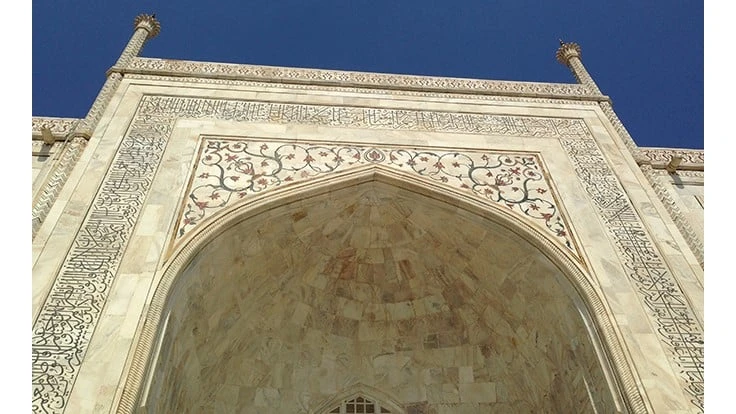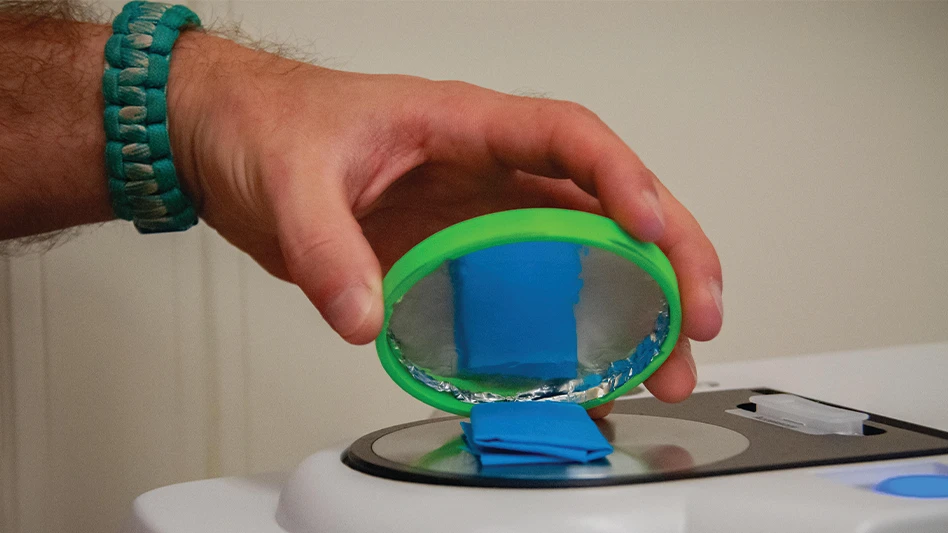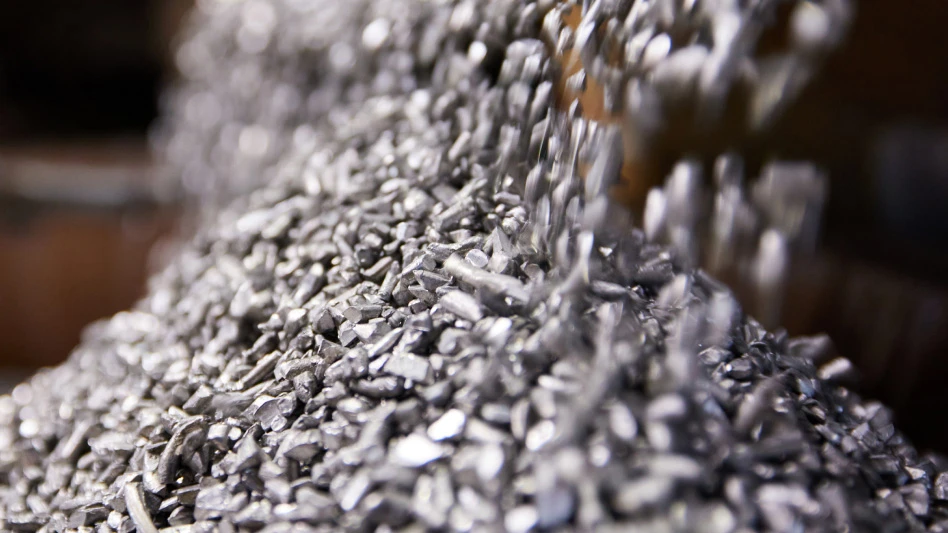
Photo by Brian Taylor.
Demand for imported scrap metal and paper remains strong in the nations of the Indian subcontinent, which include India itself and several neighboring countries, with Pakistan and Bangladesh being the largest.
The region has been beset with waves of coronavirus infections and related workplace restrictions that have, at times in 2020 and 2021, combined to make India’s still developing transportation and logistics infrastructure even more frustrating than usual.
Delays and hassles aside, the numbers show metals producers in India, Bangladesh and Pakistan remain keen to convert scrap into secondary metals that go into transportation and building products that help comprise the steady gross domestic product (GDP) growth in the region. Likewise, recovered fiber shipped from overseas is consumed vigorously by India’s paper and board producers.
Hurdles to be cleared
As COVID-19 emerged on the global scene in the spring of 2020, India made headlines for the swift and comprehensive restrictions on movement enacted by the government of Prime Minister Narendra Modi.
Importers and exporters of scrap commodities were among those left with lengthy delays in filling out necessary documents and in getting materials moved from an inbound container to its final destination. The resulting financial hassles, such as demurrage charges, were the subject of petitions and lawsuits.
During the remainder of 2020, the situation in India improved, and scrap again began flowing into the subcontinent. COVID-19 was not finished with India, however, with the spring of this year seeing a considerable spike in cases that resulted in more workplace and freight movement restrictions.
As of mid-September, one Asia-based nonferrous trader told Recycling Today, “Indian scrap imports have been, as usual, smooth without any customs clearing.” He added, “With COVID cases having become considerably lower, industrial activities are at a peak, with scarcity of raw materials pushing buyers to buy domestically.”
The trader also mentioned two recurring issues that can threaten the flow of scrap into India: maneuvers by primary metals producers to erect scrap import barriers (to help protect their own business); and efforts by India’s largest companies, in cooperation with the government, to manage the flow of domestic scrap to serve these established firms.
The shifting of domestically generated scrap to larger scrap yards run by multinational firms could indeed raise the overall level of metal available to domestic producers. However, in a nation where a sizable army of scavengers tends to find anything of value that is discarded, some observers say it is more likely a larger volume of metal will be formally recorded as recycled rather than journeying quietly from a peddler to a small melt shop.
The investments in scrap processing infrastructure include a 500,000-ton-per-year facility commissioned by Tata Steel in Rohtak, India, in the northern part of the country.
“Recycling scrap ensures the closure of the circular economy loop,” stated Yogesh Bedi, chief of Tata’s Steel Recycling Business, when that facility opened this summer. Ferrous scrap produced at the facility, which has a shredder and a baler, is being branded as Tata FerroBaled and Tata FerroShred, with the brands designed to “give a distinct identity to the processed scrap and ensure a standardized quality product for the customer and simultaneously raise the bar of the scrap Industry,” Bedi said.
India’s primary aluminum producers often seem to expend lobbying efforts to raise taxes and introduce tight restrictions on imported scrap to stave off competition from scrap-fed secondary producers.
While those efforts can create hurdles, India’s recycled-content metals producers (and those of neighboring Pakistan and Bangladesh) have not surrendered to the primary producers.
By the numbers
One of India’s largest secondary aluminum producers made news in late September by filing paperwork with a regulatory agency to raise funds through an initial public offering (IPO).
Faridabad, India-based secondary aluminum producer CMR Green Technologies, formerly known as Century Metal Recycling, says proceeds from the anticipated IPO would go toward “the payment of debt and general corporate purposes.”
The company’s Managing Director Mohan Agarwal is a staunch advocate of recycled-content metals production. At the 2020 Materials Recycling Association of India (MRAI) meeting near Delhi in February of that year, he told delegates, “Scrap is the future and recycling.”
He made that statement while acknowledging India’s government sometimes imposes lofty duties on imported aluminum scrap, often swayed by lobbying from the nation’s primary aluminum producers. (MRAI was formed in part to provide a lobbying counterweight to make the case for producers of scrap-fed metal, paper and other materials.)
Despite the ongoing placement of such hurdles, CMR Green Technologies has grown to operate 12 manufacturing plants, four of which involve joint ventures with Japanese companies Toyota Tsusho Corp. and Nikkei MC Aluminium.
On the export side of the equation, statistics gathered by the United States Census Bureau and aggregated by the U.S. Geological Survey (USGS) show the scrap metal trade between the U.S. and the Indian subcontinent remains vigorous.
A portrait of recovered fiber demand in the region can be found in a recent Recycling Today profile of Amritsar, India-based Khanna Paper. That firm consumes about 600,000 metric tons of recovered paper annually in the four paper machines found on its 80-acre campus.
Khanna Paper is a steady consumer of recovered fiber brought in via inbound shipping containers. The company’s Saurabh Khanna told Recycling Today this spring, “We had 50 containers per month when we started, and now we have more than 1,000 containers per month. We have had year-over-year growth, and we have had to hire some people because of that in 2019.”
The volume of ferrous scrap exported from the U.S. to India, Bangladesh and Pakistan (combined) has been nearly identical in the first half of 2021 compared with the first six months of 2020. Approximately 1.265 million metric tons were shipped in both time frames.
Bangladesh is the biggest buyer in the ferrous sector, having purchased 622,000 metric tons, or 49 percent, of the three nations’ total. India was next, at 332,000 metric tons (26 percent), followed by Pakistan, which received 311,000 metric tons (24.5 percent).
This year, the three nations each rank among the eight largest destinations for outbound ferrous scrap. Excluding its USMCA (U.S.-Mexico-Canada Agreement) partners with land borders, Bangladesh is the fifth largest destination, India is seventh and Pakistan is eighth.
When the three nations’ appetites are combined, their 1.265 million metric tons in the first half of 2021 fall behind only Turkey as an overseas destination (and also behind Mexico, with its land border).
Figures posted to the USGS website show CMR Green Technologies is far from alone in the region in terms of importing aluminum scrap. In the first half of this year, India brought in 169,000 metric tons of aluminum scrap, with Pakistan importing another 8,100. India’s volume puts it behind only Malaysia as a buyer of U.S. outbound aluminum scrap. (And a government agency in Malaysia might be about to make shipping scrap to that nation much more difficult.)
In early October, concerns about a coal shortage have the industrial sector in India on edge. Beyond that, if India and its neighbors are able to enjoy steady economic growth, U.S.-based processors and traders of numerous scrap materials seem poised to keep the Indian subcontinent foremost in their international trading plans for several years to come.
Latest from Recycling Today
- APR launches Recycling Leadership Awards
- Private equity firm announces majority investment in Sprout
- Author predicts spike in silver’s value
- SWANA webinar focuses on Phoenix recycling collaboration
- Domestic aluminum demand up through Q3 2024
- IntelliShift honored at IoT Breakthrough Awards
- Ace Green Recycling finalizes plans for battery recycling site in India
- Ambercycle, Benma partner to scale circular polyester





